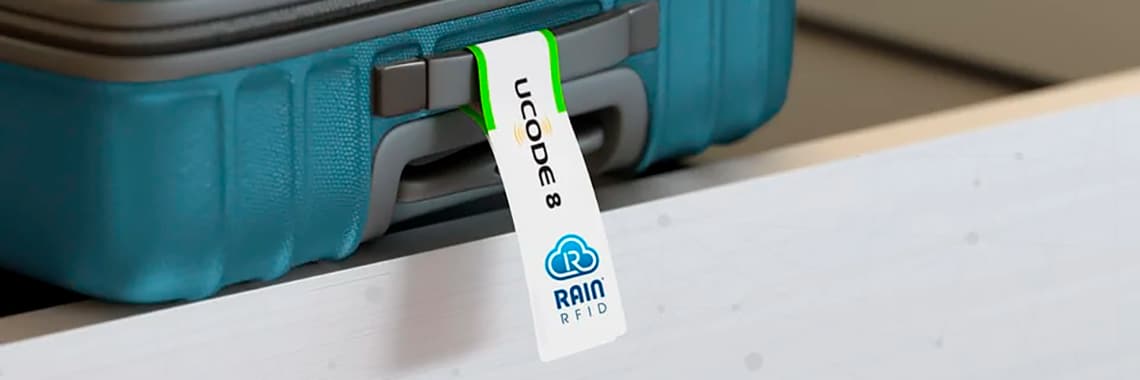It’s a traveler’s nightmare: you’re standing at the
airport baggage carousel and your bag is nowhere to be found. Your baggage has
either been delayed, damaged, lost or stolen. The airline may end up finding
it, or they may not. Either way, it’s a major inconvenience, and enough
to ruin any trip.
Airlines know that mishandled bags are a serious problem and are working hard
to minimize mishaps. Mishandling rates are, in fact, already at record lows.
The International Air Transport Association (IATA) reports that more than 3
billion bags are checked-in annually, yet, as of 2016, only 5.73 bags are
mishandled per thousand passengers, yielding a mishandling rate of just 0.57%.
But even with mishandling rates at all-time lows, every bag that somehow gets
damaged or doesn’t arrive at its destination on time has a high cost
associated with it, in terms of what it does to customer loyalty and the money
airlines spend making things right. In all, the IATA estimates that the
overall cost of mishandled bags reached USD 2.1 billion in 2016.
Replacing barcodes
Most airlines currently use barcodes, printed on the bag’s destination
tag, to keep track of checked bags. Barcodes are relatively inexpensive to
implement and have helped improve baggage statistics, but the barcode approach
has limits, and is unlikely to push beyond current mishandling rates.
Dissatisfaction with barcode systems and the desire to minimize the cost of
bag mishandling has prompted airlines to look for better methods. At the same
time, the IATA has issued Resolution 753, a stricter standard for baggage
handling, to be implemented by June 2018. The impending arrival of R753 has
added a sense of urgency to the question of how airlines deal with baggage.
Preparing for R753 Compliance
R753 requires that all of IATA’s 275 member airlines – covering
83% of total air traffic – meet a certain set of requirements for
baggage handling. Member airlines must demonstrate delivery and acquisition of
baggage when it changes custody, provide an inventory of bags upon departure
of a flight and be capable of exchanging this information with other members
or their agents as needed.
The obligations of R753 serve to track baggage during its entire journey, from
the moment you give your bag to an airline agent (or self-check it) to the
moment you retrieve it. That covers check-in, delivery of the bag to the
aircraft, any changes between aircraft or carrier, and picking up your baggage
when you arrive at your destination.
IATA’s member airlines are in favor of R753, with 77% saying they
expect the resolution will offer major benefits in terms of customer
satisfaction. Airlines also like R753 because it promises to both reduce the
costs of mishandling and increase the transparency of their operations.
What’s more, airports support R753 because it promises to improve their
performance as transit hubs, and passengers like it because of the ways it
will make air travel a better experience.
RAIN RFID for R753
Although the IATA doesn’t specify a particular set of technologies to
be used in meeting R753 guidelines, the industry is moving toward RAIN RFID as
a cost-effective way to implement R753-compliant baggage handling.
RAIN RFID chips embedded in baggage tags can be used to track individual bags
in real time as they pass through all the points in their journey. Since the
radio waves used to read data from RAIN RFID chips can pass through solid
objects, tags can be read even they’re hidden from view. RAIN RFID can
also read tags in groups, with a high degree of speed and accuracy. In just a
few seconds, readers can scan the tags from multiple bags, whether
they’re piled together or stored in a container, with an accuracy rate
near 100%. That means faster inventory counts with far fewer mistakes and
overlooked bags, and a much lower mishandling rate.
A 2017 report from SITA, a leading specialist in air transport communications
and IT solutions, states that for as little as ten cents (USD 0.10), a RAIN
RFID chip embedded in a bag tag can improve accuracy while generating a
savings of twenty cents (USD 0.20) per passenger. That’s a significant
return on investment, and the numbers add up quickly. Looking at only the
error rates during transfers between flights, when 45% of mishandling
incidents occur, RAIN RIFD offers the potential to save more than USD 3
billion over the next seven years. Improvements at other points in a
bag’s journey will only add to the savings.
NXP’s UCODE 8
At NXP, we offer the industry’s broadest RFID portfolio and support
R753 with our UCODE family of RAIN RFID ICs. The UCODE architecture delivers
the speed, accuracy and security required for peak performance in airline
applications. UCODE RAIN RFID can read baggage tags at a rate of up to 400
bags per second. UCODE also offers read/write capability, so bag tags can be
updated and reused. Airlines can issue specially equipped reusable baggage
tags to their frequent flyers, so check-in is faster and easier. Tamper
detection helps combat theft, and the exceptionally high accuracy rate of
99.9% minimizes misreads and faulty data.
The latest version, UCODE 8, delivers high-performance read rates, made possible
by an exceptional read sensitivity of -23 dBm. The high write sensitivity of
-18 dBm delivers safe writing operation in the printer, and the quick encoding
speed of 32 bits in 1.2 ms means efficient handling of even large volumes of
baggage. UCODE 8 also offers an auto-adjust feature, for robust performance
against detuning effects, and a power-consumption rate that’s 20% lower
than other solutions.
UCODE for the Long Term
With UCODE as the basis for R753 compliance, airlines can make mishandled bags
a thing of the past while building toward a future of higher overall
efficiency, lower operating costs, greater security and increased customer
satisfaction.




